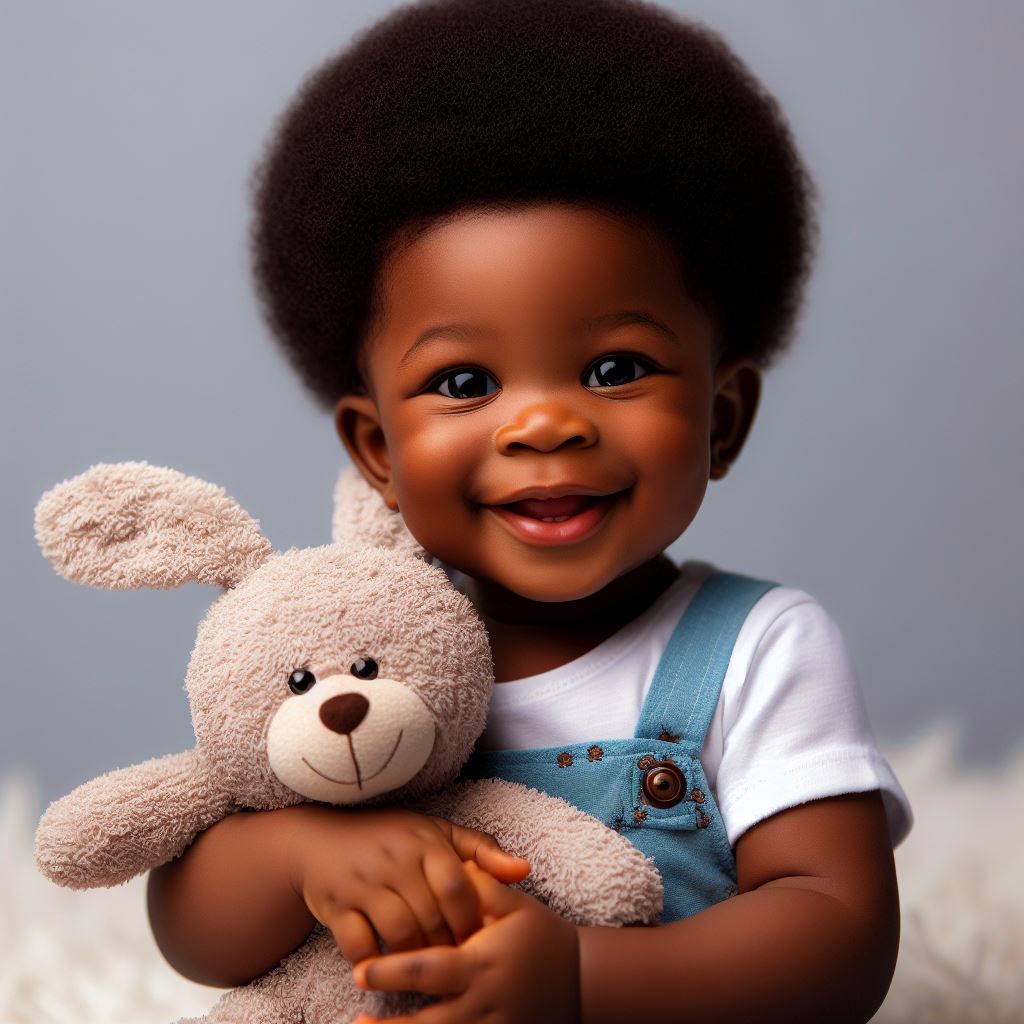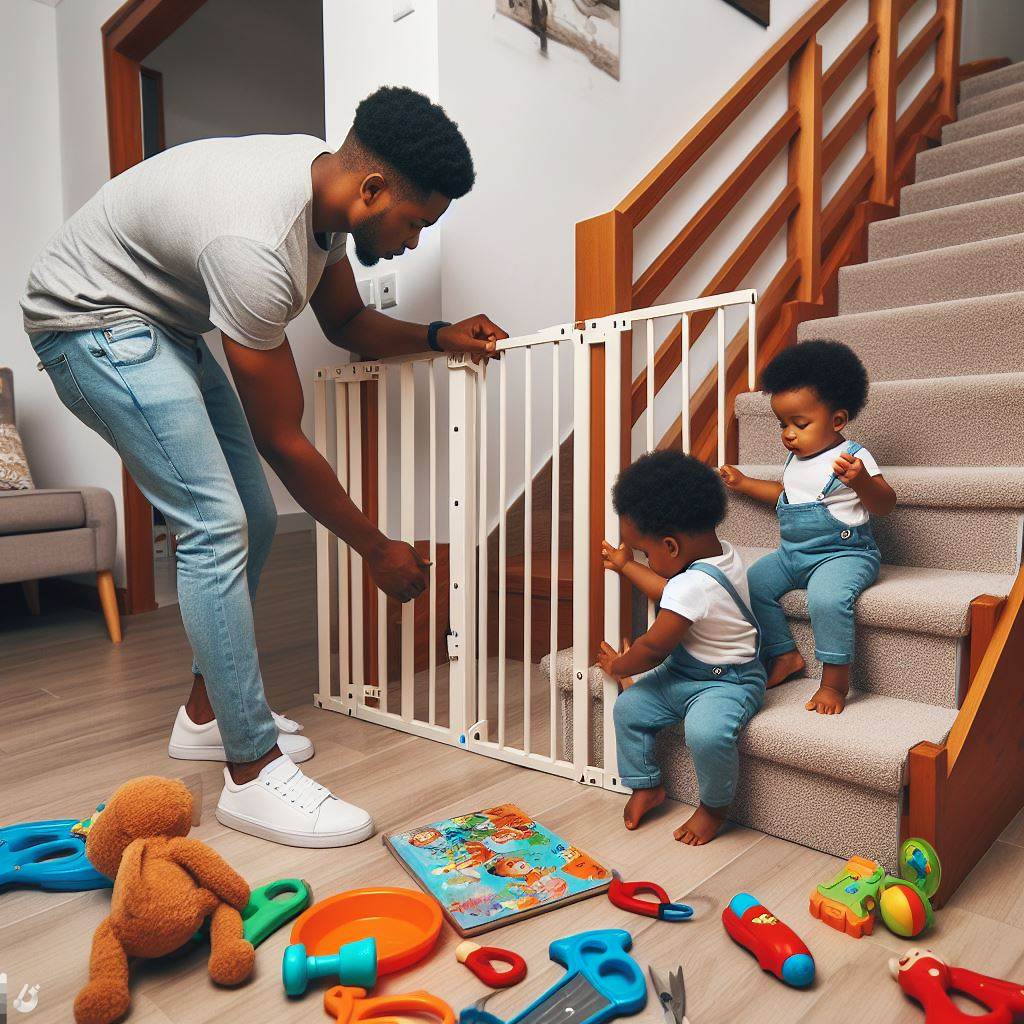Introduction
Safe Toys Guide for Parents: In the vibrant tapestry of childhood, toys play an integral role in shaping a child’s development.
As Nigerian parents, navigating the myriad options available in the market can be both exciting and daunting.
However, the paramount consideration should always be the safety of these playthings.
In this guide, we delve into the importance of choosing safe toys for your little ones and provide a comprehensive overview to assist Nigerian parents in making informed decisions.
The world of toys is vast, ranging from plush dolls to interactive gadgets, each promising hours of entertainment.
However, beneath the allure of play, lies the crucial need for safety.
Children, especially in their formative years, are prone to exploration through touch and taste.
Unsafe toys can pose serious health risks, from choking hazards to toxic materials.
Choosing toys that align with safety standards ensures a secure environment for your child to learn, grow, and play without unnecessary risks.
Navigating the labyrinth of toy options can be overwhelming, but arming yourself with knowledge is key.
This guide is designed to be a beacon for Nigerian parents, offering practical insights into selecting toys that prioritize safety without compromising on the joy of play.
We will explore factors such as age-appropriateness, material considerations, and the importance of purchasing from reputable sources.
Consider this guide as your compass, providing clarity amidst the myriad choices in the toy market.
We will delve into specific safety standards applicable in Nigeria, empowering you to make well-informed decisions.
From scrutinizing labels for age recommendations to understanding the potential risks associated with certain materials, our aim is to equip you with the tools needed to create a safe haven of play for your child.
Parenting Made Just for You
Get personalized Parenting Solutions tailored to your child’s needs. Transform your parenting journey with expert guidance in 1-3 days.
Get StartedIn the sections that follow, we will break down each aspect, offering practical tips and guidelines to ensure that the toys you choose not only captivate your child’s imagination but also prioritize their safety above all else.
As we embark on this journey together, let’s pave the way for a joyous, secure, and developmentally enriching childhood for our little ones.
Understanding Toy Safety Standards in Nigeria
In the vibrant tapestry of parenting, selecting the right toys for your child is an art.
In Nigeria, as in many other places, ensuring the safety of these cherished playthings is of paramount importance.
Understanding toy safety standards in Nigeria is an essential step in this journey, guaranteeing not just fun but the well-being of your little ones.
A. Safety Regulations and Standards in Nigeria
Nigeria, like many countries, has established stringent safety regulations for toys to safeguard children.
The Standards Organization of Nigeria (SON) plays a pivotal role in ensuring compliance with these standards.
The Nigerian Industrial Standards (NIS) for toys outline specific criteria, addressing aspects such as material composition, construction, and potential hazards.
These standards serve as a shield against substandard products that might compromise the safety of your child during playtime.
B. Why Parents Should Look for Toys with Safety Certifications
Safety certifications are the golden seal of approval for toys.
When shopping for your child, look for reputable safety certifications such as the SON Conformity Assessment Program (SONCAP).
These certifications signify that the toy has undergone rigorous testing and meets the required safety benchmarks.
Investing in certified toys provides peace of mind, assuring parents that the chosen playthings adhere to the highest safety standards.
C. Tips on How to Identify Toys That Meet Safety Standards
- Check for Certification Marks: Look for visible certification marks on the packaging. SONCAP, NAFDAC, and other recognized symbols should be present, indicating compliance with Nigerian safety standards.
- Examine Materials and Construction: Assess the materials used in the toy’s construction. Ensure they are non-toxic and free from sharp edges or small parts that could pose choking hazards.
- Follow Age Recommendations: Adhere to age-appropriate recommendations. Toys are often designed with specific age groups in mind to account for developmental milestones and safety considerations.
- Avoid Loose Parts: Be cautious of toys with small, detachable parts that could be swallowed. Opt for well-constructed toys that minimize the risk of choking incidents.
In short, understanding toy safety standards empowers Nigerian parents to make informed choices for their children.
Unveil the Perfect Name that Tells Your Family's Story
Let us help you find a name that embodies your family's values, traditions, and dreams. Our personalized consultation weaves cultural insights to create a name that's uniquely yours.
Get StartedBy prioritizing toys with relevant certifications and adhering to safety guidelines, parents contribute to a nurturing environment where play is not only joyful but also secure.
Read: Twin Talk: Understanding Twin Language
Age-Appropriate Toys
As parents, we all want the best for our children, and selecting age-appropriate toys is a crucial aspect of ensuring their safety and fostering healthy development.
The significance of choosing toys that align with a child’s age cannot be overstated.
These carefully chosen playthings not only bring joy but also contribute to the child’s cognitive, physical, and emotional growth.
A. Understanding Age Guidelines
One of the primary indicators of a toy’s suitability is the age guidelines provided on the packaging.
These guidelines are not arbitrary; they are designed to align with a child’s developmental milestones.
It’s essential to pay close attention to these recommendations, as they reflect the complexity and potential hazards associated with each toy.
B. Warnings on Toy Packaging
Responsible toy manufacturers include warnings on their packaging to highlight potential risks associated with the product.
Parents should take the time to read and understand these warnings.
Look out for information on small parts that could pose choking hazards for younger children.
Vigilance in following these guidelines ensures that the play environment remains safe and free from avoidable risks.
C. Say No to Small Parts for Younger Children
While a toy may seem appealing, it’s crucial to resist the temptation to purchase items with small parts for younger children.
Small parts pose a choking hazard and can lead to serious consequences.
Opt for toys that are specifically designed for the age group of your child, minimizing the risk of accidents and ensuring a worry-free playtime.
D. Considering Developmental Stages
Children develop at their own pace, and considering a child’s developmental stage is paramount when choosing toys.
Tailoring playthings to match a child’s current abilities and interests enhances the learning experience and prevents frustration.
For example, choose toys that encourage motor skills for toddlers and those that stimulate creativity and problem-solving for older children.
In a nutshell, the journey of parenthood is filled with choices, and selecting age-appropriate toys is a responsibility that shouldn’t be taken lightly.
By understanding age guidelines, heeding warnings, avoiding small parts for younger children, and considering developmental stages, Nigerian parents can create a safe and enriching play environment for their little ones.
Read: Health Check: Twin Babies’ Development
Toxic Chemicals and Materials to Avoid
As parents, ensuring the safety of our children is paramount, and one crucial aspect often overlooked is the toys they play with.
In Nigeria, where the market is flooded with a myriad of options, it’s essential to be vigilant about the materials used in these toys.
This section serves as a guide to help Nigerian parents make informed decisions, focusing on toxic materials and how to avoid them.
A. Toxic Chemicals and Materials to Avoid
Numerous toys contain harmful substances that can pose serious health risks to children.
One common culprit is lead, which has been linked to developmental delays and learning disabilities.
Phthalates, found in many plastic toys, are associated with hormonal disruptions. It’s crucial to scrutinize labels and be aware of these potential hazards.
B. Identifying Toys with Harmful Substances
To safeguard our children, parents should be adept at recognizing potential dangers.
Always check for warning labels and country of origin. Imported toys, especially, may not adhere to the same safety standards.
Look for signs of poor craftsmanship, as low-quality toys are more likely to contain hazardous materials.
If a toy has a strong chemical smell, it’s wise to err on the side of caution and reconsider the purchase.
C. Tips for Safer Toy Choices
Opting for toys made from BPA-free plastic or natural materials is a prudent choice.
Wooden toys, for instance, are not only environmentally friendly but also free from harmful chemicals.
Choose toys from reputable manufacturers who prioritize child safety.
Consider seeking guidance from online reviews or parenting communities to learn from others’ experiences.
In the vibrant world of toys, the safety of our children must take precedence.
By familiarizing ourselves with the potential dangers of toxic materials, we empower ourselves to make informed choices.
Choosing toys made from safer materials ensures our children can play freely, fostering both joy and health.
As Nigerian parents, let’s pledge to be vigilant consumers, safeguarding our little ones from avoidable risks in their playful journey to discovery.
Read: Nighttime Diapering Tricks for Uninterrupted Sleep

Ensuring Proper Construction and Durability
As Nigerian parents, ensuring the safety of our children is paramount, and selecting toys with proper construction and durability is a vital aspect of this responsibility.
The advantages of choosing well-constructed and durable toys extend beyond just playtime—they contribute to our children’s overall well-being.
A. Advantages of Selecting Well-Constructed and Durable Toys
- Longevity: Quality construction ensures that toys withstand the test of time, providing countless hours of safe entertainment for our little ones.
- Safety Assurance: Well-made toys are less likely to break or have loose parts, reducing the risk of accidents and injuries during play.
- Educational Value: Durable toys often come with more interactive features, contributing to cognitive development and stimulating a child’s imagination.
B. Tips for Checking the Quality of Toys Before Purchase
- Material Matters: Opt for toys made from non-toxic materials. Ensure they meet safety standards and carry relevant certifications.
- Sturdy Construction: Examine the toy for robust construction. Avoid toys with weak joints or loose components that could potentially become choking hazards.
- Age-Appropriate: Choose toys that are suitable for your child’s age. Manufacturers often provide age recommendations to help guide parents in making appropriate choices.
- Research Brands: Look for reputable brands with a history of producing safe and durable toys. Read reviews and seek recommendations from fellow parents to make informed decisions.
C. Warning Against Hazards
- Loose Parts: Steer clear of toys with small, detachable parts that could be swallowed or cause choking. Inspect toys regularly for any signs of wear and tear.
- Sharp Edges: Be wary of toys with sharp edges or protruding parts that could pose injury risks. Prioritize rounded edges and smooth surfaces.
- Age-Inappropriate Features: Ensure that the toy’s complexity aligns with your child’s developmental stage. Complex toys may have small parts that are unsuitable for younger children.
By prioritizing proper construction and durability when selecting toys for our children, we are not only investing in their entertainment but also safeguarding their well-being.
Remember, a carefully chosen toy can foster creativity, learning, and, most importantly, a safe and enjoyable childhood.
Read: Nutrition for Twins: Feeding Tips & Tricks
Consideration for Toy Size and Potential Hazards
As Nigerian parents, ensuring the safety of our little ones is a top priority, and choosing the right toys plays a crucial role in this endeavor.
In this section, we’ll delve into the importance of considering toy size and potential hazards to create a safe and enjoyable play environment for our children.
A. Appropriate Size Matters
Selecting toys that are suitable for a child’s age and developmental stage is paramount.
Small toys, while adorable, can pose a serious choking hazard for younger children.
Opt for toys that are large enough to prevent accidental ingestion and ensure they are developmentally appropriate for your child’s age.
B. Beware of Small Parts
When perusing the toy aisle, be vigilant about small parts that might detach easily.
These seemingly harmless components can become potential choking hazards.
Prioritize toys labeled with age-appropriate guidelines and avoid those with detachable pieces that are smaller than the recommended safety standards.
Regularly inspect toys for loose parts to ensure ongoing safety.
C. Say ‘No’ to Strings and Cords
Toys with cords or long strings may seem innocuous but can pose strangulation risks.
Opt for toys without these features, especially for infants and toddlers.
If a toy does have strings, ensure they are short and secure, minimizing the risk of entanglement.
Regularly inspect toys for wear and tear, and promptly replace any that show signs of damage.
D. Educate and Supervise
Empower yourself with knowledge about age-appropriate toys and potential hazards.
Educate caregivers and family members about these safety considerations to ensure a unified approach.
Additionally, always supervise playtime, especially for younger children, to mitigate potential risks and address any emerging safety concerns promptly.
By prioritizing the appropriate size and avoiding potential hazards in toys, we contribute to a safer and more enjoyable play environment for our children.
Remember, a little extra attention during toy selection goes a long way in creating a world of fun without compromising safety.
Stay tuned for more insights on choosing safe toys for Nigerian tots in our next section!
Electric and Battery-Operated Toys
As technology continues to weave its way into the fabric of our children’s playtime, electric and battery-operated toys have become increasingly popular.
While these toys offer engaging experiences and educational benefits, it is paramount for Nigerian parents to prioritize safety when selecting such items for their little ones.
A. Safety Precautions
- Inspect for Proper Insulation: Before purchasing any electric or battery-operated toy, carefully examine its construction. Ensure that all wires and components are well-insulated to prevent any risk of electric shocks.
Opt for toys with robust, high-quality materials that can withstand the wear and tear of enthusiastic play. - Secure Battery Compartments: Children are naturally curious, and they may try to explore the inner workings of their toys.
To mitigate potential hazards, choose toys with securely sealed battery compartments that require a tool or simultaneous actions to open. This reduces the risk of small parts or batteries becoming accessible to little hands. - Check for Safety Certifications: Always look for reputable safety certifications on the packaging or product information. Certifications from regulatory bodies indicate that the toy has undergone thorough testing for electrical safety, material quality, and other essential factors.
In Nigeria, certifications from organizations like SON (Standards Organization of Nigeria) are crucial indicators of a toy’s safety standards.
B. Tips for Parents
- Regularly Inspect and Maintain: Even after purchase, the responsibility of ensuring safety does not diminish. Regularly inspect the toy for any signs of wear, tear, or damage. Replace batteries promptly and follow the manufacturer’s guidelines for maintenance.
- Beware of Counterfeit Products: In the pursuit of affordability, some parents may be tempted to opt for cheaper alternatives. However, this can pose serious risks, as counterfeit toys may lack the necessary safety features or quality standards. Stick to reputable brands and authorized retailers to guarantee the authenticity of your child’s playthings.
Electric and battery-operated toys can enrich a child’s learning experience, but safety must remain at the forefront of our choices.
By following these precautions and tips, Nigerian parents can ensure that their children’s playtime is not only enjoyable but also secure from potential electrical hazards.
Importance of Supervision and Active Play
In the dynamic world of parenting, ensuring the safety of our little ones is paramount.
When it comes to selecting safe toys for our children in Nigeria, supervision and active play emerge as critical components.
This section delves into why these elements are indispensable for creating a secure play environment.
A. Importance of Supervision
Unleashing the potential of toys in a safe manner requires vigilant parental oversight.
No matter how well-designed a toy is, it is not a substitute for a watchful eye.
Children, especially the younger ones, may not fully comprehend potential risks associated with certain toys.
Hence, active supervision becomes the first line of defense.
During playtime, parents should be present, attentive, and ready to intervene if necessary.
This not only prevents accidents but also fosters a sense of security in the child, allowing them to explore and learn within the confines of safety.
Regularly inspecting toys for wear and tear is also part of responsible supervision, ensuring that no broken or hazardous items find their way into your child’s play space.
B. Encouragement for Active Play
Active play not only promotes physical health but also facilitates a deeper parent-child connection.
Engaging in playtime activities with your child not only strengthens the bond but also provides an opportunity to observe and guide their interactions with toys.
From building blocks to interactive games, actively participating in play allows parents to understand the developmental needs of their children better.
Moreover, it sets the stage for open communication, creating an environment where children feel comfortable sharing their experiences and concerns.
C. Tips for Safe Play
- Choose Age-Appropriate Toys: Ensure that the selected toys align with your child’s age and developmental stage.
- Inspect Regularly: Routinely check toys for any signs of damage, loose parts, or potential hazards.
- Establish Play Zones: Designate specific areas for play to minimize the risk of accidents and enhance supervision.
- Educate Your Child: Teach your child about the importance of playing safely and adhering to guidelines.
By emphasizing the crucial role of supervision and active play, Nigerian parents can fortify the foundation of a safe and joyful playtime experience for their children.
Remember, an involved and watchful parent is the best guardian of a child’s well-being during play.
Conclusion
Choosing safe toys for Nigerian children is of utmost importance.
As parents, it is crucial to prioritize safety when purchasing toys for our little ones.
Throughout this guide, we have discussed various factors to consider, such as age appropriateness, quality, and potential hazards.
It is essential to take all these aspects into consideration to ensure our children’s safety.
Additionally, we must encourage other parents to be vigilant and cautious when selecting toys for their kids.
By sharing the knowledge we have gained, we can create a safer environment for all Nigerian children.
While safety is paramount, we must also focus on fulfilling our child’s developmental needs through appropriate toy selection.
It is possible to find toys that are both safe and beneficial for their growth and learning.
In the end, Nigerian parents should always prioritize safety when choosing toys for their children.
By doing so, we can safeguard their well-being while providing them with engaging and enriching play experiences.
Let’s ensure our little ones can explore, learn, and grow in a safe environment.




